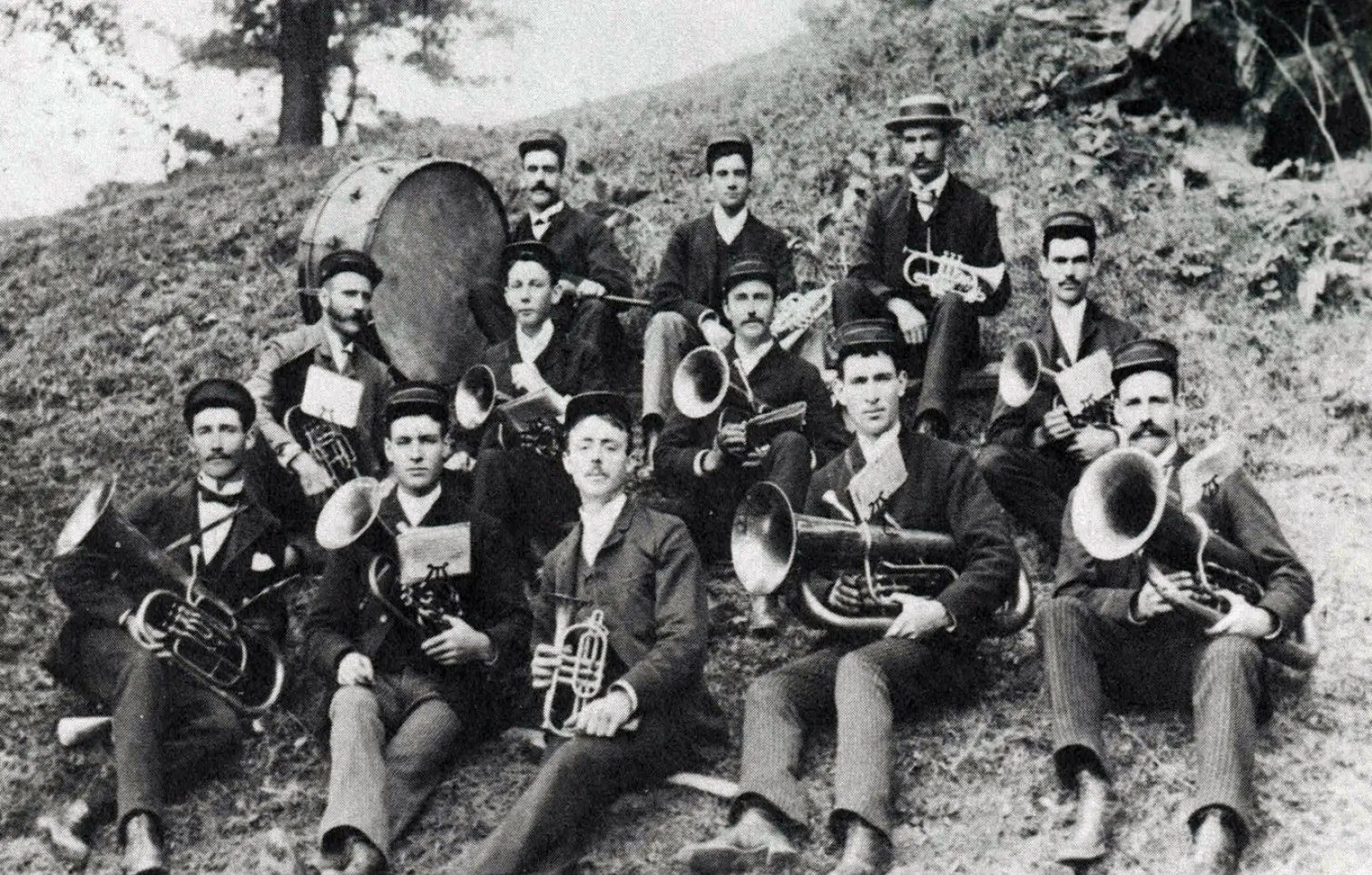There’s no denying Downsview’s incredibly rich musical heritage.
In the 1950s, future stars from the worlds of rock and roll, rockabilly, and R&B like Roy Orbison and Ike and Tina Turner, played the Crang Plaza Auditorium at Jane and Wilson. Not far from there, legends such as Frank Sinatra and Duke Ellington packed the 700 seat Hook and Ladder Club at the Beverley Hills Motor Hotel. And of course, over the past few decades, Downsview has been at the centre of Toronto’s world renowned hip hop and urban music scene. We've detailed it here.
But if you want to learn about where Downsview’s extraordinary musical history began, you need to set the time machine all the way back to the early 1880s, and the birth of the Downsview Brass Band.
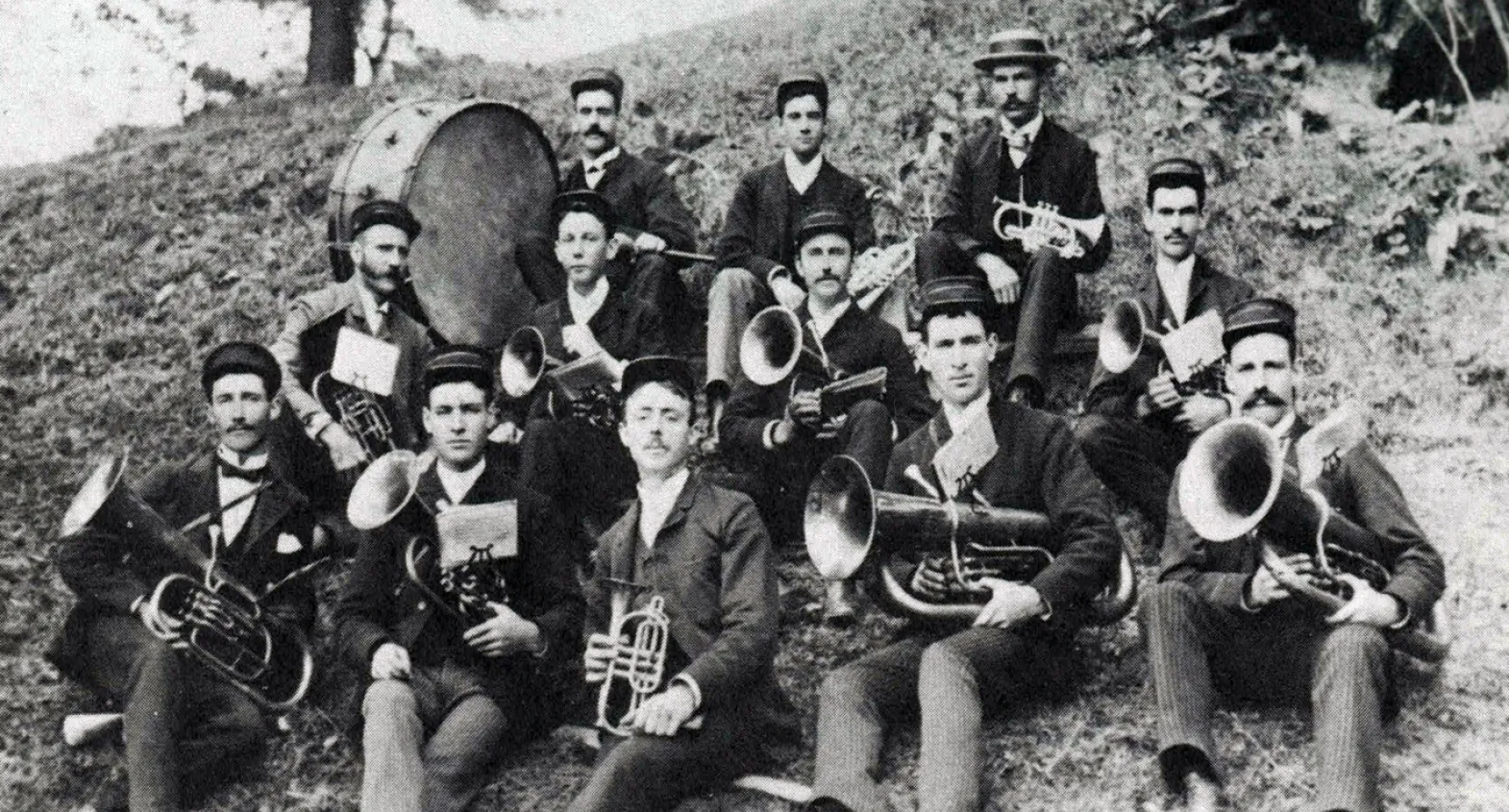
We know a surprising amount about the DBB, as it was widely known, because its exploits were prominently featured in the book From Oxford to Ontario: A History of the Downsview Community, written by William Perkins Bull in 1941. It remains the most complete social history of the early years of the Downsview settlement. According to Bull, “nearly every family in the community, at one time or another was represented in the personnel in the Band.”
The horse-drawn wagon carrying the players and their instruments, with the initials DBB prominently displayed across its side, was a common and very welcome sight across southern Ontario in those days.
The band travelled as far afield as Peterborough, Brampton, Richmond Hill, Malton, and even south to Toronto. They were greeted enthusiastically at “any picnic, tea meeting, soiree, garden party, charivari, or parade.”
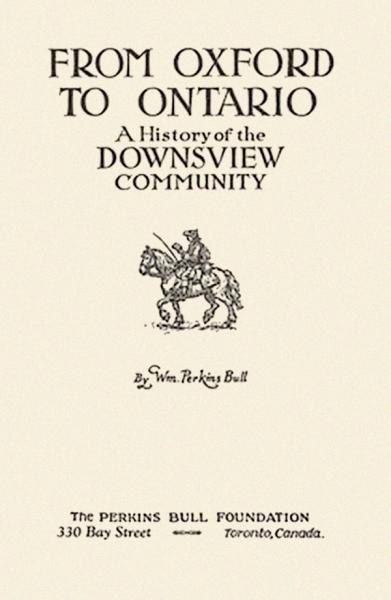
They were also welcomed at events where alcohol was served, always under the table, of course. That led many people to think of the band’s members as good time party boys. In fact, in some quarters, the initials DBB were said to stand for the “Devil’s Bad Boys.” They were also sometimes known as the “Sarsaparilla Band.” But Bull insists that was all a big mistake. “They were,”, he assures us, “consistent and persistent members of the British American Order of Good Templars,” one of the leading temperance organizations of the day.
The leader of the band was Thomas Emery, a musical polyglot who could write music, sing in the church choir, and play the violin, even though some of the older congregants looked upon that instrument as “the agency of the devil.” Before coming to Downsview, Emery had served twenty-one years as a bandsman in the British army, mainly in Gibraltar and Malta. His gifts as a salesman were nearly as great as his musical gifts, and after arriving in Downsview, it took him just three months to assemble a twenty piece band and have them ready for their first performance at the Church of England picnic in Hoggs Hollow. The DBB was so well received that they were asked to return for the next eleven years.
A performance by the DBB did not come cheap. Thomas Emery charged $3 a night as its leader, and the band charged $10-15 dollars for a performance. But that didn’t deter the leaders of many local organizations, who preferred to pay to hear the DBB rather than hire bands who offered to play for free.
One of those leaders, Canon Osler of St. John’s Church in York Mills declared "no siree, no free bands. We want the good looking Downsview boys or the girls won’t come.”
One of the band’s most lucrative gigs was aboard a specially commissioned train for railway workers that ran out of Toronto to Niagara Falls, Peterborough and other points. The organizer of these excursion trains paid the band members $2-3 apiece.
But according to Bull, “railroaders were not always total abstainers. Their hilarity at times put the temperance principles of the Downsview boys to a severe test. However the DBB came through triumphantly.”
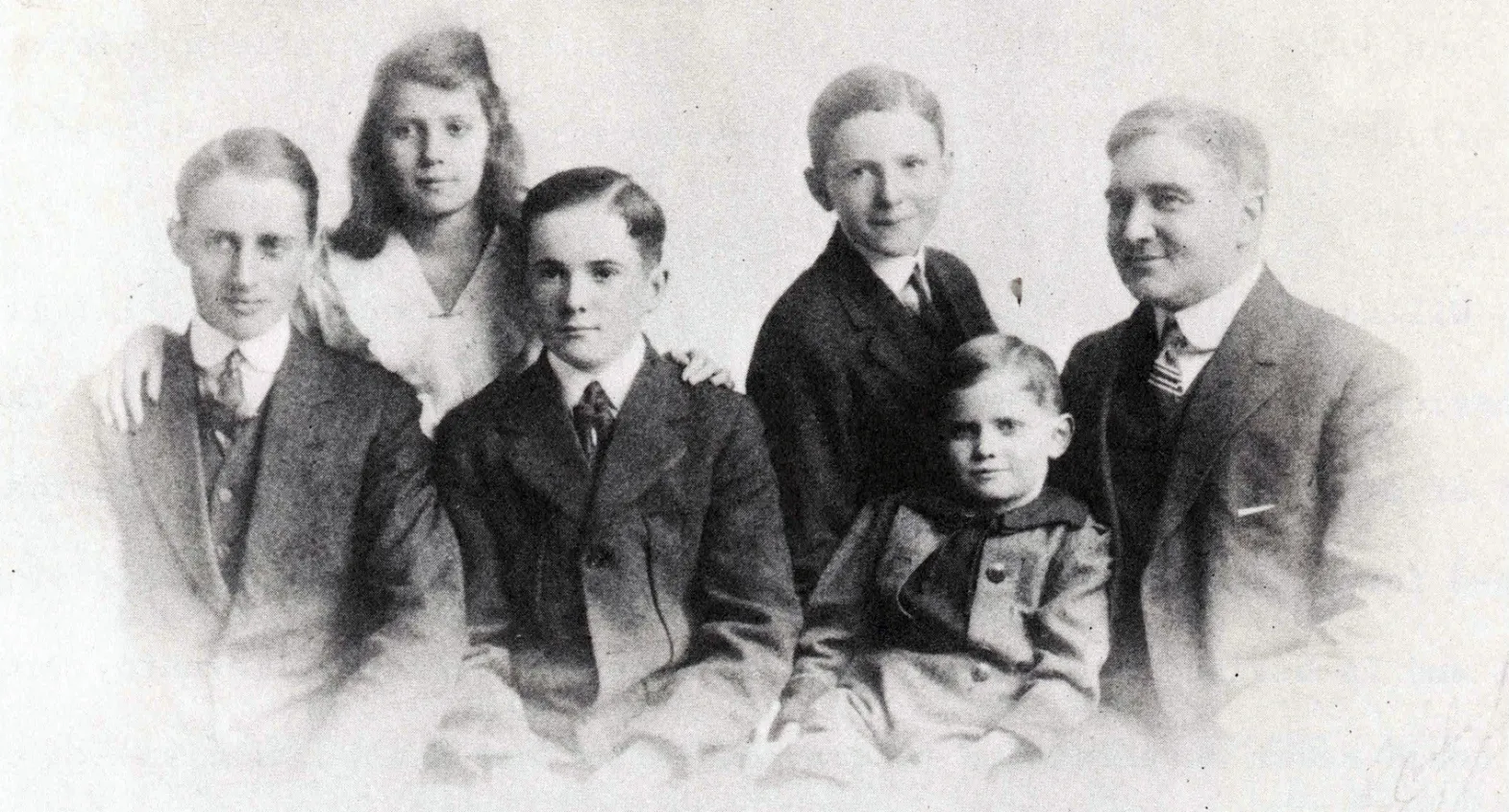
But all good things must eventually come to an end, and by the 1890s, time was catching up to the Downsview Brass Band. Those “good looking Downsview boys” were settling down, getting married and having children. New recruits were hard to find, and eventually the band broke up.
But it had been a great and valuable adventure. As William Perkins Bull concluded, “it had given splendid training; companionship in it developed a fellowship of lasting value, and its members made good in after life.”
More Stories
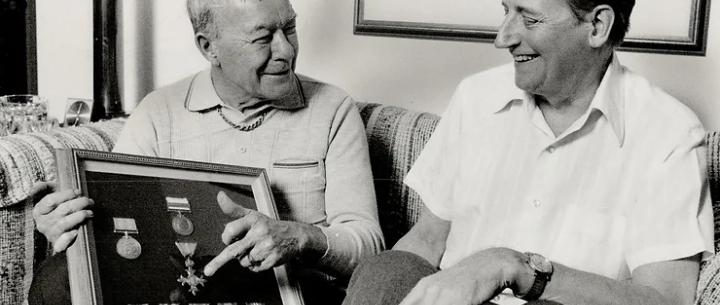
Downsview’s Queer Histories & The LGBT Purge
From the Two-Spirit Pow-Wows in Downsview Park, to the queer-positive roller derbies in the Downsview Supply Depot, to inclusion at Downsview United Church, today, 2SLGBTQI+ people are at home on the Downsview lands.
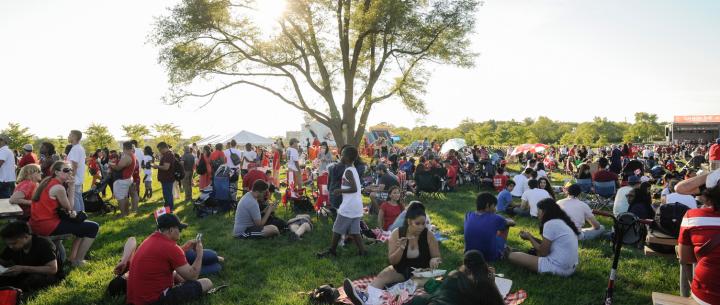
Downsview Park History
The Park emerged out of a commitment of the Government of Canada. In 1994-1995, the government announced that it would decommission the Canadian Forces Base Toronto and that the land would be set aside for development, recreational, and broader public uses.
